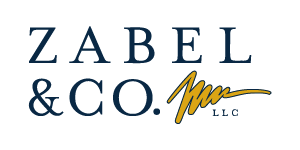Yes, That’s a great question. Knowledge is power, and our Budgeting & Forecasting services is why Zabel can help. We give you the power to lead your business towards higher profits, increased financing if desired and a higher Return on Investment. Our Virtual CFO service has years of extensive selection of budgeting, forecasting and corporate performance management ranging from many reporting measures to identify the overall health of your business, Inventory control, Cash controls all the way up to a full financing analysis to improve management, planning and decision-making. All of our Budgeting and Forecasting services are committed to providing the CEO and shareholders of your company with accurate financial projections and budgets for future operations. These processes will define the current state of the business, estimate future sales, and will help you prepare a budget oriented towards achieving your goals.
Providing Innovative Service
No matter what budgeting and forecasting service you choose, your company will obtain in-depth reports and expert insight. In fact, all of our services are designed to accommodate the exclusive needs of businesses owners. On average our clients have managed to increase the Return on Investment (ROI) by more than 15% when using our services over time.
Let Forecasting Help You To Define your Goals
Forecasting is the art of predicting future trends that the company may see. This is vital for preparing an accurate budget and a strong financial strategy. Forecasting uses a combination of your companies past sales figures and well-researched projections that will give you a realistic insight into the future of your company. With this knowledge in hand, you will be able to create an accurate budget that strategically allocates finances to the areas where your business will need it the most utilizing trailing twelve or eighteen month financials.
A Well Defined Budget Will Help Optimize Your Organization For Growth
Budgets are detailed financial statements of expected revenues and expenses, and the value of a professionally made budget cannot be understated. A budget prepared by our service will give your business the knowledge it needs to find new opportunities for cost cutting and to develop clear, achievable goals. This will ensure that you will never be caught off guard by unexpected expenses, and always have enough finances to fulfill your goals. With our budgeting services, we will define a profit-oriented budget and financial plan that will help your company thrive.
Methods Used to Help Grow Your Business
By separating our service enables your business to choose the exact service that it needs, at a price range you can afford. Whether you wish to review your business through corporate performance management, or would like to provide your management staff with accurate information to improve their decisions and planning.
- Financing Anаlуѕіѕ
- Profіtаbіlity Anаlуѕіѕ
- Prо-Fоrmа Fіnаnсіаl Prоjесtіоn
- Cаѕh Flоw Prоjесtіоn
- Industry Sресіfіс Comparative Anаlуѕіѕ
- Industry Kеу Pеrformаnсе Rаtіоѕ Rерort

